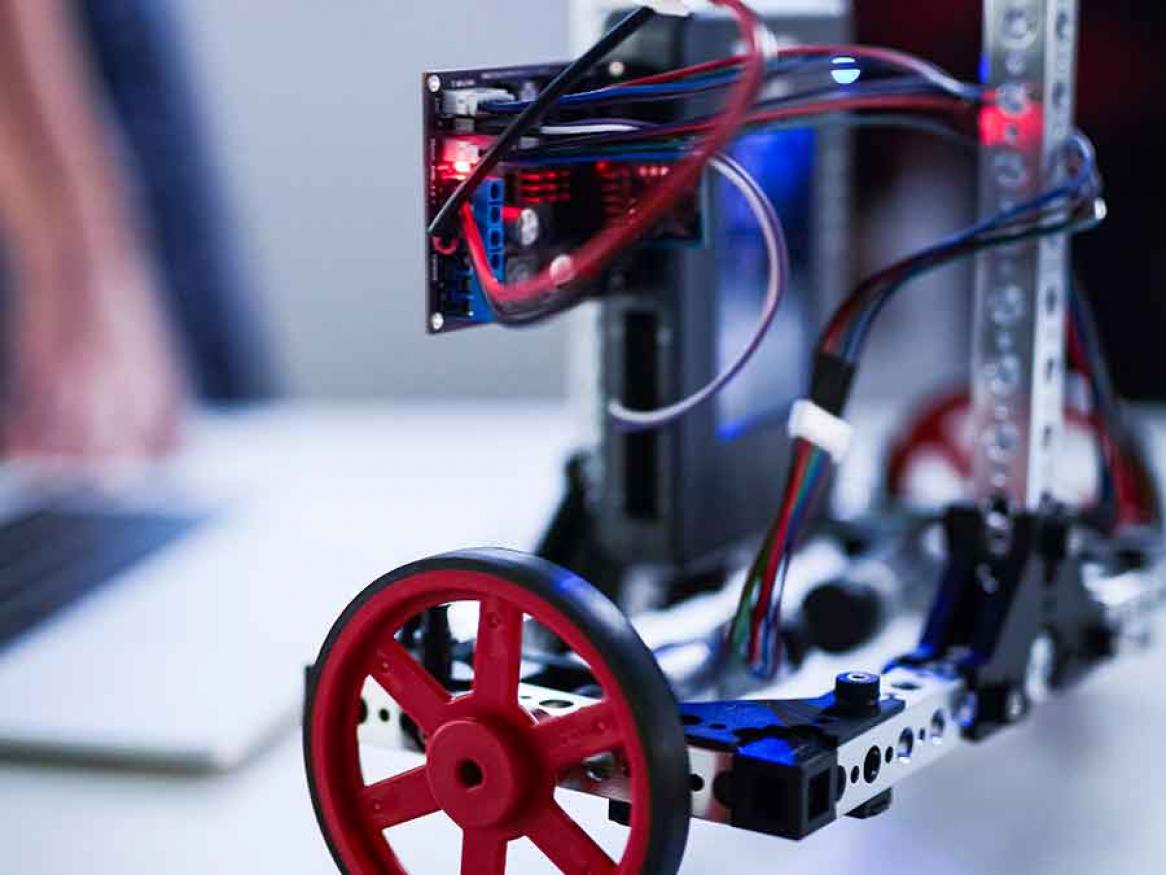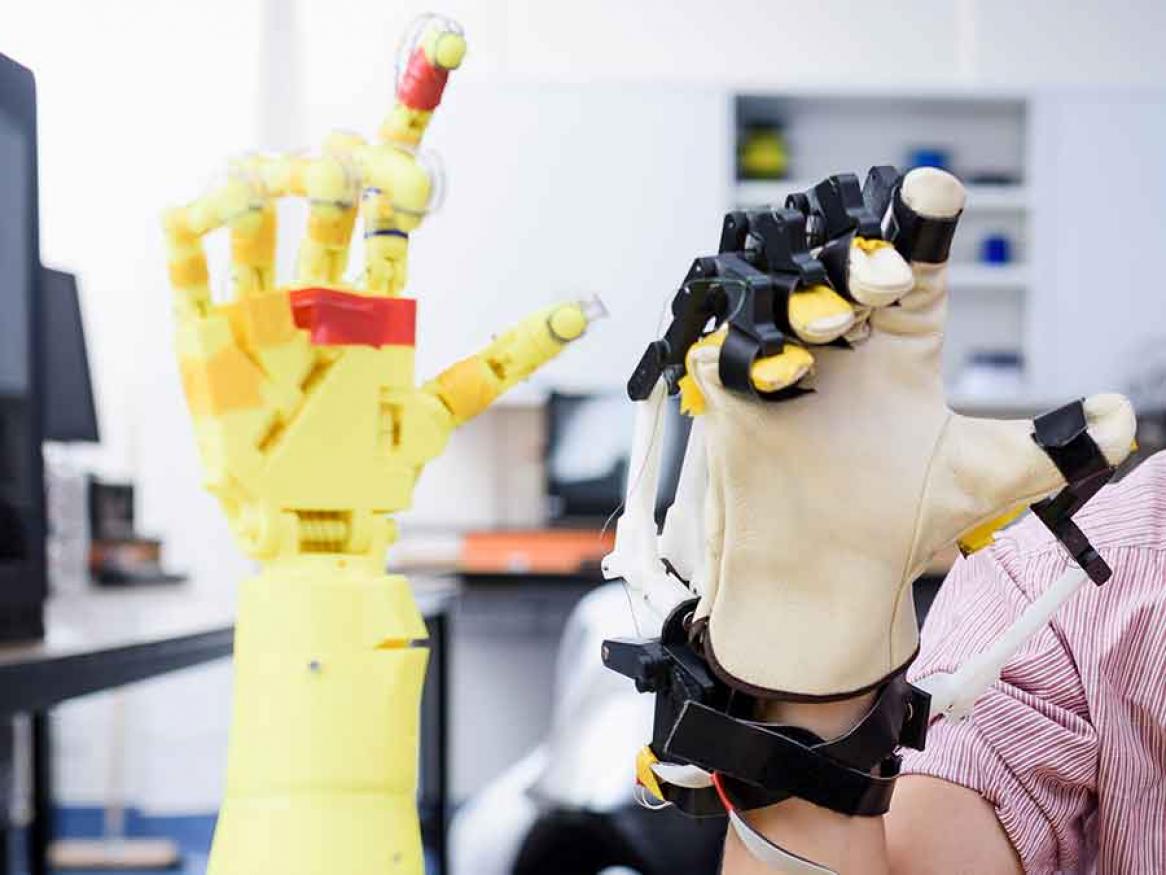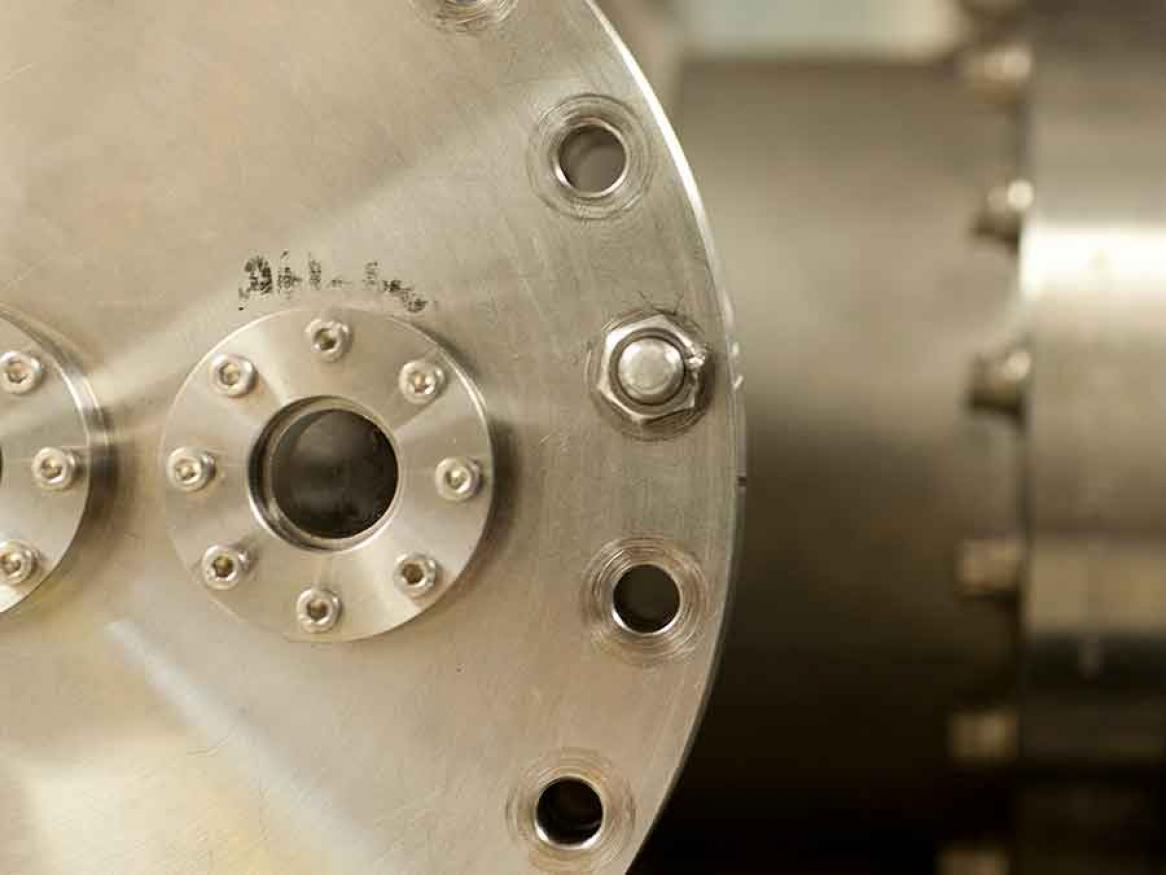School for Electrical and Mechanical Engineering
Building a more secure, sustainable society through world-class research and teaching.
Our culturally diverse School encompasses the disciplines of Electrical and Electronic Engineering, Mechanical Engineering and Biomedical Engineering.
Our world-class scholars, alumni, and students push the boundaries of engineering and science – inventing new technologies, launching successful startups, managing technology companies – positively impacting society in South Australia, the nation, and beyond.
Our disciplines
Research and collaboration
HDR opportunities
Expand your industry connections and discipline-specific skills with one of four PhD and Masters-level research degrees.
Study with us
Learn from our world-renowned researchers and academics to make innovative discoveries in one of the world's most pioneering environments.
State-of-the-art facilities
Access cutting-edge research centres and facilities to make breakthroughs in engineering and science.
Latest news
An Introduction to Fundamentals of Diffusion in Solid State Materials
Associate Professor Reza Ghomashchi launched a new book providing comprehensive overview of diffusion in the synthesis and analysis of materials research.
Techno-Economics of Offshore Renewable Energy: Wind, Wave, Energy Storage and System Integration
A comprehensive and integrated overview book of the technical and economic aspects of offshore wind, wave energy, and energy storage system is launched by our Staff.
Find your degree
Search Degree Finder for undergraduate, postgraduate coursework and postgraduate research degrees, subjects and careers.






